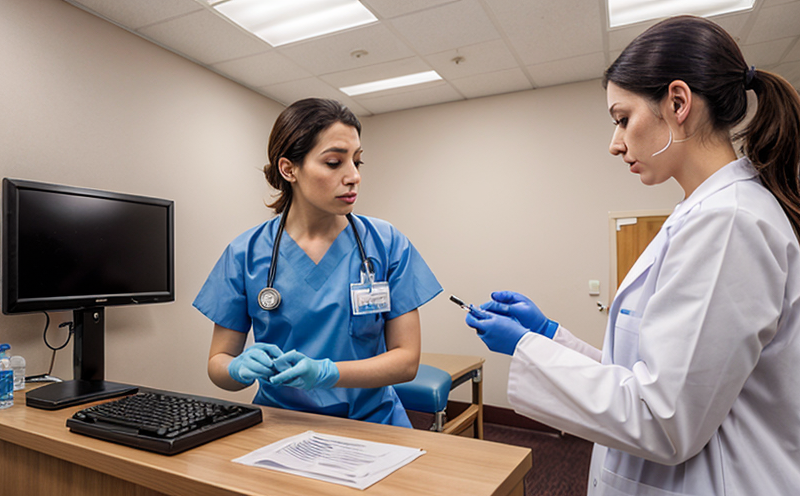Toxic Algal Bloom Screening in Marine Fish Farms
Marine fish farms are vital to global food security and economic growth. However, the presence of toxic algal blooms (TAOs) can pose significant risks to farmed fish populations and human health through contaminated seafood products. Toxic Algal Bloom (TAB) screening is critical for ensuring the safety of these operations by identifying harmful algal species before they reach dangerous levels.
In this service, we employ advanced analytical techniques tailored specifically for detecting TAOs in marine environments. Our approach ensures accurate identification and quantification of potentially toxic dinoflagellates like Alexandrium, Pyrodinium, or Gymnodinium, which produce neurotoxins such as saxitoxin (STX), domoic acid (DA), or paralytic shellfish toxins (PSP).
The process begins with water sampling directly from the fish farm ponds or surrounding waters. Specimen preparation involves filtering the collected samples onto pre-sterilized membranes, followed by fixation and preservation to prevent further growth during transport back to our laboratory facilities.
Once received at our lab, we utilize a combination of microscopic examination using phase contrast microscopy (PCM) coupled with flow cytometry (FCM). These methods allow for rapid identification based on morphological characteristics combined with fluorescence markers that highlight specific toxin-producing cells. Additionally, molecular diagnostic tools like quantitative polymerase chain reaction (qPCR) enable precise quantification of target species.
Our comprehensive reports provide detailed information about the presence and concentration levels of harmful algal species along with recommendations for mitigation strategies if necessary. This proactive approach helps farm managers make informed decisions regarding harvesting schedules, water quality management practices, and other operational adjustments to maintain optimal conditions for both production efficiency and environmental sustainability.
By leveraging cutting-edge technology supported by robust scientific principles, we ensure accurate and reliable TAB screenings that contribute significantly towards safeguarding public health while supporting sustainable aquaculture practices.
Scope and Methodology
- Sample Collection: Water samples are collected from designated locations within the fish farm ponds or adjacent waters using standardized containers designed to minimize contamination.
- Preparation: Samples undergo filtration through 1.2 μm pore size membranes followed by fixation and preservation procedures to maintain sample integrity until analysis.
- Analytical Techniques: Microscopy (PCM & FCM) combined with molecular diagnostics (qPCR) provides robust identification and quantification capabilities for TAOs.
Quality and Reliability Assurance
International Acceptance and Recognition
This service aligns closely with international standards set forth by organizations such as ISO, ASTM, EN, IEC, and other relevant bodies. Our methodologies adhere strictly to these guidelines ensuring consistency and comparability across different regions.





